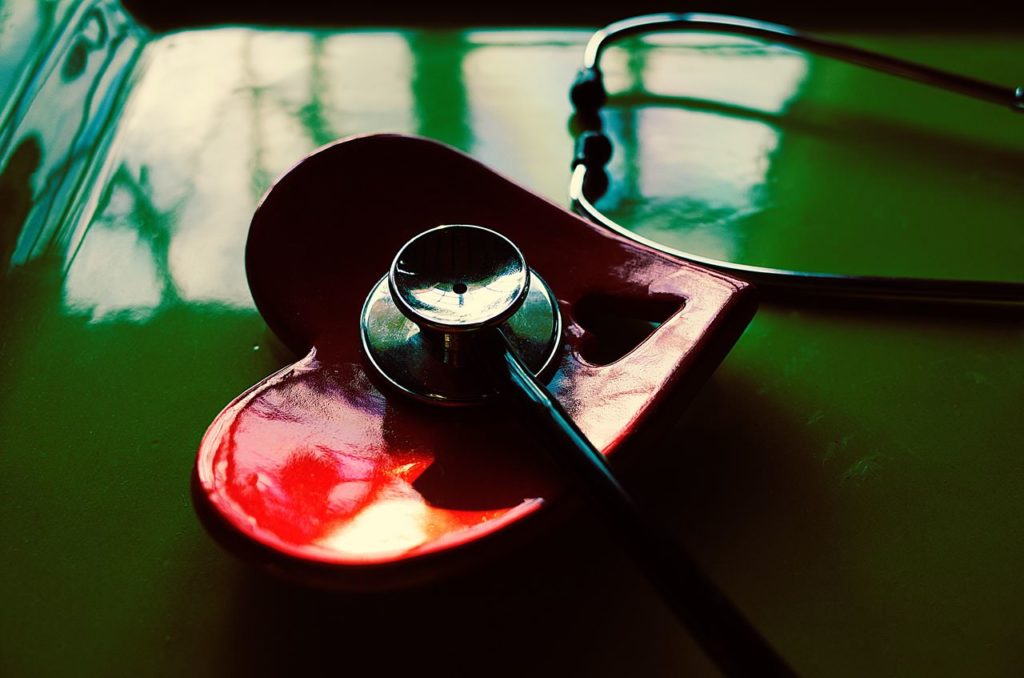Medically Reviewed by: Chris Duncombe, M.D.
You may be familiar with the use of probiotics for enhancing gut health. However, what you may not know is that these gut-friendly bacteria may also be beneficial for heart health too.
Research has shown that certain strains of probiotics may help to lower cholesterol, and in turn, lower your risk for heart disease.
Since heart disease remains to be the leading cause of death among adults globally, this probiotics may hold promise for future advances in its prevention. (1)
What are probiotics?
Probiotics are live microorganisms such as bacteria and fungi that can have health benefits. (2)
They can be found in foods such as fermented cabbage like kimchi and sauerkraut, in dairy products like yogurt or kefir, which is fermented milk. (2,3)
There are trillions of microorganisms that live inside and on the human body, including about 100 different species of bacteria that all have varying roles in health and maintenance of the body. (4)
Probiotics are most commonly known for their help in improving digestive conditions such as irritable bowel syndrome and related conditions like diarrhea and constipation. However, more and more research is starting to examine the potential benefits of probiotics to improve the state of inflammatory conditions such as heart disease, diabetes, as well as skin disorders like eczema and acne. (4,5)
When the microbiome of the gut is imbalanced, the body is at higher risk of inflammation and in turn, chronic diseases. (4) There is a theory known as the brain-gut-skin axis. The premise is that the state of the microbiome is linked to the health of the skin and to all other aspects of health. (6) Imbalances in the gut can lead to inflammation in the body, such as stress‐induced neurogenic skin inflammation, which was found in laboratory mice.
About High Blood Cholesterol and Heart Disease
High blood cholesterol, or hypercholesterolemia, occurs when there are too many lipids circulating in the blood. Besides the total cholesterol, there are three types of cholesterol. HDL, or high-density lipoprotein cholesterol is considered “good”. (7) It carries cholesterol from other parts of your body to the liver where it is then removed from the body.
Another type of cholesterol is LDL, or low-density lipoprotein cholesterol, which is considered bad since it can lead to the buildup of plaques in the arteries. (7) This can
A third type of cholesterol is VLDL, or very low-density lipoprotein cholesterol, which also contributes to an increase in plaque in the arteries.
For most adults, a person is considered to have high cholesterol if (8,9):
• Total cholesterol is higher than 200 mg/dL.
• LDL cholesterol is higher than 100 mg/dL.
• HDL cholesterol is lower than 40 mg/dL.
• Non-HDL cholesterol less than 130 mg/dL.
The most common cause of high cholesterol is an unhealthy lifestyle such as poor diet, obesity, sedentary behavior, and smoking. (7,8) Typical treatment for high cholesterol is reversing such behaviors by improving the diet by adding more fiber-rich foods like fruits and vegetables, reducing red meat intake, and increasing consumption of healthy fats from fatty fish, nuts, and seeds. (9) Also, it is recommended to be more active, lose weight, and quit smoking if you are a smoker.
Do Probiotics Help Lower Cholesterol?

Although lifestyle behaviors may be helpful in most cases, some people may require more intensive treatment options such as medications like statins to help lower their cholesterol. However, research has found that statins may not work with everyone, and that reason may stem from their gut bacteria.
In one study, it was found that those participants who responded best to statin drugs had specific bile acids produced by certain gut bacteria. (10) Those who did not respond to the drug well did not have these bile acids present in their system. Therefore, probiotics may play a role in the effectiveness of some cholesterol-lowering treatments.
So to answer the question “do probiotics help lower cholesterol?”, the answer is most likely yes based on the available evidence. However, this should not be thought of as a replacement to any medications you’ve been prescribed and you should always talk with your doctor before making any dietary changes.
How do Probiotics Lower Cholesterol?
There are several mechanisms that have been accepted as ways that probiotics work to lower cholesterol. One mechanism is the ability of probiotics to bind to cholesterol in the small intestine. (1) Probiotic bacteria like Lactobacillus and cholesterol bind together, which makes the cholesterol less available for absorption in the intestine.
Another mechanism involves bile salt hydrolase activity of probiotic strains. Bile salt hydrolase is an enzyme that breaks down bile salts into free bile acids. (11) The liver uses cholesterol to make bile acids. Conjugated bile salts, which are those bound to the amino acids taurine and glycine, are more efficiently absorbed into the intestine, than deconjugated, or unbound bile salts. (1,11) Therefore, deconjugated bile salts can be broken down to bile acids, which can then be excreted via
Probiotics have been shown to help deconjugate bile salts into free bile acids and can
A third mechanism involves probiotics and their consumption of cholesterol. Basically, it has been found that some probiotics may bind to cholesterol and absorb it into the cell membrane, so it no longer circulates in the blood. (1,12)
Which Probiotic Strains are Most Effective for Lowering Cholesterol?
A 2015 meta-analysis looked at 30 randomized controlled trials on the effects of probiotics on lowering cholesterol. (12) Researchers found that the probiotic strains Lactobacillus acidophilus, as well as Lactobacillus acidophilus and Bifidobacterium
A 2017 meta-analysis looked further at these types of randomized controlled trials. It was found that consumption of Lactobacillus
In other studies, Lactobacillus
Studies so far show promise for the use of probiotics as part of a cholesterol-lowering program. Talk to your healthcare provider to see if adding probiotics could be effective for you.
[expand title=”References“]
1. Kumar, M., et al. (2012) “Cholesterol-Lowering Probiotics as Potential Biotherapeutics for Metabolic Diseases.” Experimental Diabetes Research, Volume 2012, Article ID 902917, 14 pp.
2. National Center for Complementary and Integrative Health (accessed May 17, 2018) “Probiotics: In Depth.” https://nccih.nih.gov/health/probiotics/introduction.htm
3. Nagpal, R., et al. (2012) “Probiotics, their health benefits and applications for developing healthier foods: a review.” FEMS Microbiology Letters, 334(2012): 1-15.
4. Wang, B., Yao, M., Lv, L., Ling, Z., and Li, L. (February 2017) “The Human Microbiota in Health and Disease.” Engineering, 3(1): 71-82.
5. American Academy of Dermatology (January 30, 2014) “Could probiotics be the next big thing in acne and rosacea treatments.”
6. Arck, P., et al. (2010) “Is there a ‘gut-brain-skin axis’?” Experimental Dermatology, 19: 401-405.
7. Medline Plus (last updated April 30, 2018) “Cholesterol.” https://medlineplus.gov/cholesterol.html#
8. National Heart, Lung, and Blood Institute (accessed May 17, 2018) “High Blood Cholesterol.” https://www.nhlbi.nih.gov/health-topics/high-blood-cholesterol
9. Mayo Clinic (accessed May 17, 2018) “High cholesterol.” https://www.mayoclinic.org/diseases-conditions/high-blood-cholesterol/diagnosis-treatment/drc-20350806
10. Duke University Medical Center (October 14, 2011) “Gut bacteria may affect whether a statin drug lowers cholesterol.” ScienceDaily, www.sciencedaily.com/releases/2011/10/111013184815.htm
11. Zhuang, G., et al. (2012) “Research advances with regards to clinical outcome and potential mechanisms of the cholesterol-lowering effects of probiotics.” Clinical Lipidology, 7(5): 501-507.
12. Cho, Ph.D., Y.A. and Kim, Ph.D., J. (October 2015) “Effect of Probiotics on Blood Lipid Concentrations: A Meta-Analysis of Randomized Controlled Trials.” Medicine, 94(43): e1714.
13. Wu, Y., Zhang, Q., Ren, Y., and Ruan, Z. (2017) “Effect of probiotic Lactobacillus on lipid profile: A systematic review and meta-analysis of randomized, controlled trials.” PLoS One, 12(6): e0178868.
14. Costabile, A., et al. (2017) “An in vivo assessment of the cholesterol-lowering efficacy of Lactobacillus plantarum ECGC 13110402 in normal to mildly hypercholesterolaemic adults.” PLoS One, 12(12): e0187964.
15. Martoni, Ph.D., C.J. and Prakash, Ph.D., S. (November 5, 2012) “Daily doses of a new probiotic reduces ‘bad’ and total cholesterol.” ScienceDaily, https://www.sciencedaily.com/releases/2012/11/121105114620.htm
16. Michael, D.R., et al. (2017) “The anti-cholesterolaemic effect of a consortium of probiotics: An acute study in C57BL/6J mice.” Scientific Reports, 7: Article number 2883, doi:10.1038/s41598-017-02889-5
[/expand]
